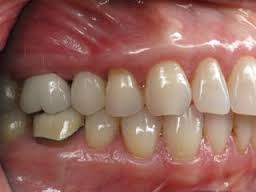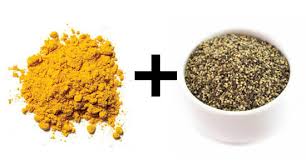Loose teeth can be most irritating, especially in adults. In children, loose teeth are normal as baby teeth have to shade to give room for permanent teeth. Since the new set of teeth is meant to be permanent, they can pose a big problem when they get loose. Usually, this means that the teeth have a disease that was left to develop over time. Gum diseases (specifically periodontal disease), is the common cause of loose teeth in adults. Periodontal disease is a bacterial infection of the gums, which can even affect other organs in your body and increase the risk of other diseases. Such problems can also be the result of a tooth injury or biting on hard things. Now comes the question, can a loose tooth be saved? Are there any things you can do?

Signs of Loose Teeth
It is important to learn signs of loose teeth as these will help you discover the presence of the condition and control it before it is too late. This way, you will not have to suffer the actual loss of teeth, and might even prevent a condition from spreading to other teeth. The following signs indicate that you might have severe gum disease and should pay an urgent visit to the doctor before things get out of hand.
- Bleeding gums
- Sore and swollen gums
- Red or purple gums
- Bleeding as you brush or floss your teeth
- Pus around your teeth
- Packing of food around the teeth or gums
- Recession of the gums
Can a Loose Tooth Be Saved?
This entirely depends on the severity and the cause of your condition. Loose teeth can be restored to their initial healthy state if the condition is not allowed to develop to severe levels. Also, the cause of the loose tooth can determine whether or not the condition can be reversed.
1. Slightly Loose Teeth
Slightly loose teeth are usually the result of an injury. Such teeth can be restored to their correct state by allowing them time to get tightly reattached to the gums. The teeth should also not be exposed to a lot of movement. Shaking the tooth frequently to check whether it has been restored can result in longer healing time. The only time you need to touch the tooth is when you need to reposition it, if it was displaced during the injury.
2. Grinding
Grinding of the teeth can also make teeth loose since it imposes stress on the periodontal ligaments. This condition is equally easy to control. If you visit your dentist, you will be provided with mouth guard to wear as you sleep to protect your teeth. The mouth guard will simply provide a cushion for your teeth to slide over instead of clenching against each other.
3. Gum Diseases
Can a loose tooth be saved if it is caused by gum diseases? Gum diseases are the worst cause of loose teeth. At the initial stages, this condition can be controlled. However, if left to develop to periodontal disease, it can necessitate the removal of the tooth. If you experience any of the symptoms of loose teeth and have not had an injury on your teeth, then this is the likely cause of the problem.
Treating gum disease involves deep cleaning of the teeth in several visits to the dentist. This will be done separately for each quadrant of the teeth. Root planning and dental scaling will be done to get rid of the deposits that collect in the periodontal pockets. Your dentist can also recommend medication to shrink the periodontal pockets.
4. Very Loose or Knocked Out Teeth
If your tooth is knocked out or very loose and almost falling off, then this requires a quick visit to the dentist. This should actually be done within two hours or the tooth will be permanently lost.
First aid procedures can be taken while waiting for the doctor. You can try rinsing the tooth, either with clean water or with saliva. The tooth should then be fixed back to its correct position, with its crown on the same level as the rest of the teeth. Fixing the tooth can also be aided by a cloth that you bite on to keep the tooth in position.
If the tooth is knocked out, do not let it dry. Let it stay in a cup of water or milk till you can see the dentist. A "save a tooth" toolkit can prove to be very useful in such cases.
Remedies You Can Try with Loose Teeth
Can a loose tooth be saved? Well, that depends. But whatever the case, loose teeth can cause severe pain. The loss of teeth is also not going to be pleasing for anyone. Here are some good home remedies that you can use to prevent loose teeth from falling off:
1. Pepper and Turmeric

This is a great way to get rid of the discomfort that comes with loose teeth, and should be done twice in a day. Take some pepper and mix it with turmeric, then apply the mixture to your gums, rubbing gently for a few minutes. Then you can rinse the mixture from your mouth with clean water. Avoid any foods or drinks for some time after rinsing the mixture from your mouth.
2. Mustard Oil
 Mustard oil helps to strengthen gums, and in effect, prevents the falling of loose teeth. This remedy requires a mixture of one tablespoon of salt and two drops of mustard oil. The mixture is to be applied over the gums, and the gums should be gently rubbed afterwards for about a minute. Then the mouth should be rinsed with cold water.
Mustard oil helps to strengthen gums, and in effect, prevents the falling of loose teeth. This remedy requires a mixture of one tablespoon of salt and two drops of mustard oil. The mixture is to be applied over the gums, and the gums should be gently rubbed afterwards for about a minute. Then the mouth should be rinsed with cold water.
3. Salt

Mix some salt and water in a cup, and gargle the mixture twice a day. And don't forget to rinse your mouth with clean water afterwards. Salt helps to kill bacteria that can be the cause of the loose teeth.
4. Foods Rich in Vitamin C

Vitamin C is essential for the formation of strong gums and can relieve the pain caused by loose teeth, and should therefore be included to regular meals. Foods rich in this nutrient include oranges, milk, kiwi, strawberries, etc.
5. Peppermint Oil

If your loose tooth is causing you pain, then peppermint oil can be useful in this case. Dilute the oil and rub it over the loose tooth, or use it to rinse your mouth.
6. Oregano Oil

Just like peppermint, oregano oil helps reduce the pain and swollen gums associated with a loose tooth. The oregano oils should be applied on the gums around the loose tooth to get relief.
How to Prevent Loose Teeth
Prevention of loose teeth is easier than treating it, and should therefore be taken more seriously. It simply involves checking your diet and practicing good oral hygiene. On a similar level, the type of toothpaste you use should also be checked to ensure that it contains proven chemicals. Your diet should always be balanced with lots of vitamins to boost your immunity. When brushing and flossing teeth, you should take care not to brush into your gums.
